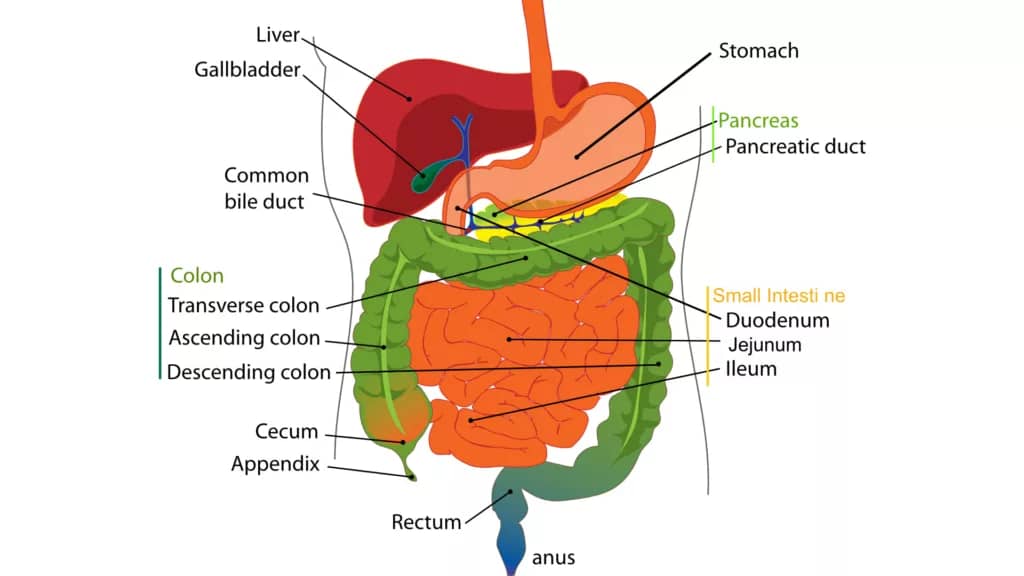TCM Nutrition and Diet Therapy
In Traditional Chinese Medicine (TCM), diet is considered to be the foundation of good health and the first line of defence against disease. A balanced diet should not only include all essential nutrients but also promote a balanced lifestyle of work and rest. Neglecting balance may lead to a host of health problems, including disease, deficiency, and a poor quality of life. Inadequate nutrition can also lead to symptoms such as brain fog, improper sleep habits, cardiovascular disease, or skin conditions.
Diet therapy in TCM can play a crucial role in promoting health and addressing various health concerns. It can encourage improvements in weight loss, diabetes, energy, immune system, sleep, and hormonal balance.
Define TCM Nutrition and Diet Therapy
TCM Nutrition and Diet Therapy is a branch of TCM that focuses on the use of food as medicine to promote health and prevent disease. It is based on the idea that food not only provides essential nutrients but also has energetic properties that can affect the body’s balance and wellbeing. By understanding the properties and energetics of food, TCM Nutrition and Diet Therapy aims to promote optimal health by creating a balanced and individualized diet plan. The principles of TCM Nutrition and Diet Therapy are rooted in the same concepts as other branches of TCM, including the Yin and Yang theory, the Five Elements theory, and the concept of Qi.
The Principles
Traditional Chinese Medicine (TCM) Nutrition and Diet Therapy are based on the principle of balance and harmony between the body and the environment. It recognizes that the body is a microcosm of the larger universe and that food is an essential source of energy and nourishment that can help maintain the body’s balance and promote health.
The main principles of TCM Nutrition and Diet Therapy include the concepts of yin and yang, the five flavors, the four natures, and the four qi. In TCM, food is not just a source of sustenance, but also a form of medicine that can help maintain health and prevent disease. According to TCM, each food has its own properties and energetics that can influence the body’s internal balance and overall wellbeing.
Yin and Yang: The concept of yin and yang is fundamental to TCM, and is also applied to food. Yin foods tend to be cooling and moistening, while yang foods tend to be warming and drying. The balance of yin and yang in the diet is believed to be essential for maintaining health.
The Five Flavors: In TCM, foods are categorized into five flavors: sweet, sour, bitter, salty, and pungent. Each flavor is associated with specific organs and meridians in the body, and has its own unique effects on health.
The Four Natures: Foods are also classified according to their four natures: cold, cool, warm, and hot. The nature of a food determines its effect on the body’s internal temperature, and can influence digestion and other bodily functions.
The Four Qi: Qi refers to the vital energy that flows throughout the body. Foods are classified into four qi categories: ascending, descending, floating, and sinking. The qi nature of a food can influence its effect on the body’s internal energy and overall health.
Understanding the properties and energetics of foods is important in TCM nutrition and diet therapy, as it allows practitioners to tailor dietary recommendations to the individual needs and constitution of each patient.
TCM Nutrition and Diet Therapy also emphasize the importance of individualized treatment. It recognizes that each person has a unique constitution and therefore requires a personalized approach to diet and nutrition. TCM practitioners consider factors such as age, gender, body type, and current health conditions when developing a dietary plan.
The Role of Food
In TCM, food is not just a source of energy and nutrients but also a form of medicine. The principles of TCM view food as an essential part of maintaining a healthy balance in the body, which involves balancing yin and yang, the five flavors, and the four natures.

TCM believes that the type of food, its preparation, and its consumption are crucial to maintaining good health. Different foods can have different effects on the body, and the way they are cooked and consumed can affect how they are absorbed and utilized by the body. Therefore, TCM emphasizes the importance of eating a balanced diet that includes a variety of whole, natural foods and avoiding foods that can disrupt the body’s balance.
Additionally, TCM recognizes that individual constitution and health status play a significant role in determining what foods are best for an individual. TCM Nutrition and Diet Therapy aims to provide personalized recommendations that take into account a person’s unique needs and goals. By following TCM dietary guidelines and making appropriate food choices, individuals can improve their overall health and prevent illness.
Application of TCM Nutrition and Diet Therapy
Application of TCM Nutrition and Diet Therapy involves understanding individual constitution, identifying common TCM dietary patterns, and using TCM food therapy for common health issues.
- Understanding individual constitution and the impact of food
In TCM, each person has a unique constitution that affects how they respond to food. This includes factors such as age, gender, and body type, as well as specific health conditions and environmental factors. By understanding an individual’s constitution, TCM practitioners can provide personalized dietary recommendations that promote optimal health and prevent illness.
- Common TCM dietary patterns
TCM recognizes several dietary patterns that can help balance the body and promote health. These patterns include:
- A balanced diet that includes all five flavors (sour, bitter, sweet, pungent, and salty) and focuses on whole, unprocessed foods.
- Yin-nourishing foods that are rich in antioxidants, healthy fats, and amino acids to support the body’s yin energy.
- Yang-nourishing foods that are warm and spicy to support the body’s yang energy.
- Foods that support the spleen and digestive system, such as cooked vegetables, grains, and legumes.
- Foods that promote circulation, such as ginger, garlic, and hot peppers.
- TCM food therapy for common health issues
TCM food therapy uses specific foods and preparation methods to address common health issues. For example:
- For respiratory issues, TCM recommends foods that nourish the lungs, such as pears, honey, and mushrooms.
- For digestive issues, TCM recommends foods that support the spleen and promote digestion, such as cooked vegetables, ginger, and fermented foods.
- For skin issues, TCM recommends foods that promote circulation and nourish the blood, such as dark leafy greens, beets, and berries.
- For hormonal imbalances, TCM recommends foods that support the liver and promote detoxification, such as cruciferous vegetables, bitter greens, and dandelion root tea.
By using TCM food therapy, individuals can address specific health issues and promote overall well-being.
At Huatuo Clinic, TCM Nutrition and Diet Therapy is an integral part of our approach to healthcare. Our experienced practitioners work with patients to identify their unique needs and develop customized nutrition plans based on TCM principles. We understand that diet plays a crucial role in maintaining health and preventing disease, and we strive to educate our patients on the importance of healthy eating habits.
Our Nutrition Department combines TCM dietary advice, acupuncture, moxibustion, and Chinese herbal medicine to address a wide range of health concerns, including digestive disorders, weight management, diabetes, cardiovascular disease, sleep issues, hormonal imbalances, and more. Our goal is to help patients achieve optimal health and wellbeing through personalized nutrition plans and natural therapies.
We also offer seasonal eating and food recommendations, TCM cooking techniques, and guidance on incorporating TCM herbs and spices into daily meals. Our approach is holistic, taking into account not only the nutritional content of food but also its energetic properties and effects on the body. We believe that a balanced diet and lifestyle are key to maintaining good health and preventing disease, and we strive to empower our patients to make informed choices about their nutrition and overall wellbeing.





